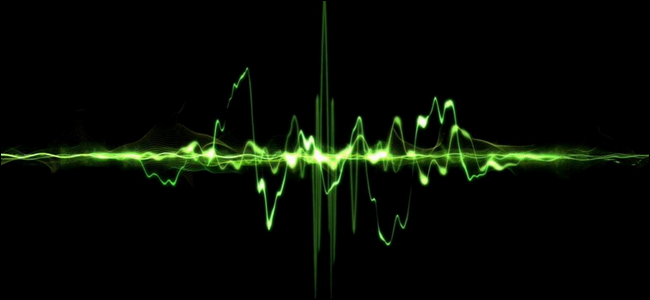There are a variety of household devices and electronics that can interfere with your Wi-Fi signal, but most don't have the ability to do so quite so spectacularly as a microwave oven. Read on as we explore how a microwave can wreak havoc on your wireless network.
Today’s Question & Answer session comes to us courtesy of SuperUser—a subdivision of Stack Exchange, a community-driven grouping of Q&A web sites.
The Question
SuperUser reader Ohlin wants to know why his microwave is slaying his Wi-Fi connectivity:
Every time I start the microwave in the kitchen, our home Wi-Fi stops working and all devices lose connection with our router! The kitchen and the Wi-Fi router are in opposite ends of the apartment but devices are being used a little here and there. We've been annoyed by the instability of the Wi-Fi for some time and it wasn't until recently we realized it was correlated to microwave usage.
After some testing with having the microwave on and off we could narrow down the problem to only occurring when the router is in
b/g/nmode and uses a set channel. If I change to
b/gmode or set channel to
autothen there is no problem any more...but still!
The router is a Zyxel P-661HNU ("802.11n Wireless ADSL2+ 4-port Security Gateway" with latest firmware) and the microwave is made by Neff with an effect of 1000W (if this information might be useful to anyone). There is an "internet connection" light on the router and it doesn't go out when the interruption occurs so I think this is only an internal Wi-Fi issue.
Now to my questions:
- What parts of the Wi-Fi can possibly be affected by the microwave usage? Frequency? Disturbances in the electrical system?
- How can setting
onAutomake a difference? I thought the different channels were just some kind of separation system within the same frequency spectrum?channels- Could this be a sign that the microwave is malfunctioning and slowly roasting us all at home? Is there any need to be worried?
Since we were able to find router settings that cooperate well with our microwave's demand for attention, this question is mainly out of curiosity. But as most people out there...I just can't help the fact that I need to know how it's possible :-)
Typically it's the Wi-Fi router causing trouble for other electronics (e.g. the Wi-Fi interferes with the baby monitor) and not, usually, the other way around. What's going on here?
The Answer
SuperUser contributor Bob offers some insight into why the microwave is causing such problems:
802.11 (b/g/n) typically operates on the 2.4 GHz band. This is conveniently the same/very close to the band that your microwave oven emits. It's also an ISM band, which can be freely used at low power without licence - it was originally supposed to be used for non-communication purposes, but the lack of a licence requirement makes it very attractive.
Most microwave ovens tend to be very well shielded and will not emit enough radiation[*] to interfere with wireless communications. It is possible that your unit has a damaged shield. You could look into replacing it.
A better thing to do would be to upgrade your wireless networking equipment and devices (note that many, especially older, devices are 2.4 GHz only) to be 5 GHz compatible (used with 802.11 a/n). This is the other major band WiFi networks can operate in (though 2.4 is far more common), and should not suffer interference from microwave ovens.
Addressing your [question about] different channels, microwave ovens (which should label the output frequency somewhere) should use ~2.450 GHz.
WiFi (b/g/n) channels typically range from 2.412 GHz to 2.472 GHz, with a bandwidth of 20 MHz and a 2 MHz band gap. If you pick a channel from the upper or lower end, and assuming your microwave oven is precise enough with its frequency, you could sidestep it entirely. This is, however, just a guess.
[*] I must point out that 2.4 GHz is far from ionising radiation, which is at least 2400000 GHz (the type that can harm human tissue and/or cause cancer). Even if the shield is faulty, it will not cause any harm. Any (very slight) damage would be caused by heating (and not directly by 'radiation'), which you most definitely will feel before any real damage. Also, just don't stand in front of it for hours a day. That always helps.
Have something to add to the explanation? Sound off in the the comments. Want to read more answers from other tech-savvy Stack Exchange users? Check out the full discussion thread here.


